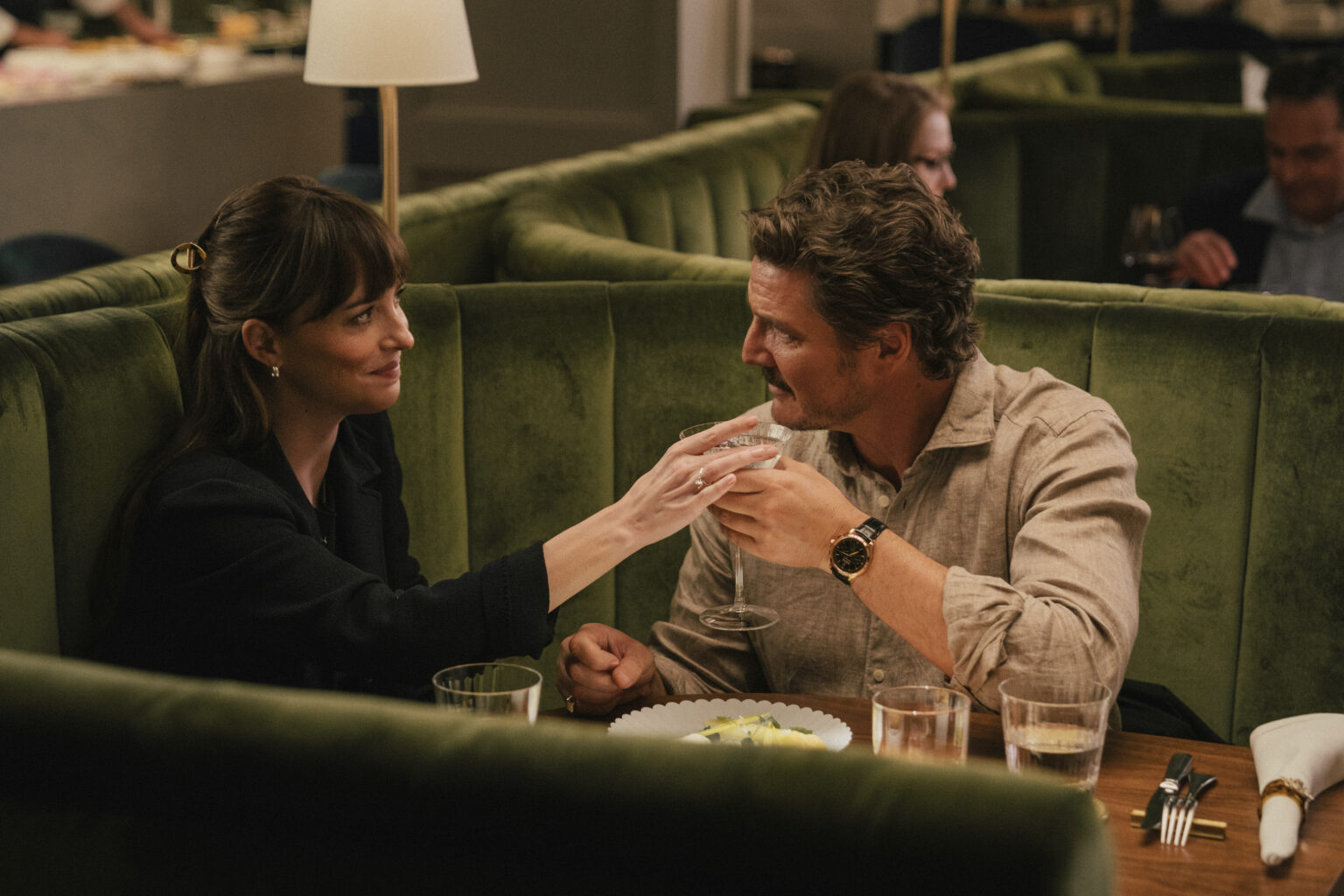Reimagining Modern Dating: Insights from the Intersection of Stock Markets and Romance
Last week, the New York Stock Exchange’s ticker boards displayed an unexpected and unconventional set of data-profiles of single men from across the city, including their ages, heights, incomes, and other personal details. Instead of the usual financial figures, these boards showcased a new kind of market-one measuring the “romantic value” of individuals, with each man assigned a fluctuating rating indicating their desirability in the dating arena.
This innovative marketing stunt was orchestrated by film distributor A24 to promote Materialists, a romantic comedy directed by Celine Song. The film stars Dakota Johnson as Lucy, a professional matchmaker caught between her affluent current boyfriend (Pedro Pascal) and her financially struggling ex (Chris Evans). The movie explores themes of transactional dating, where initial perceptions of a partner are heavily influenced by economic considerations-making the NYSE’s display a fitting promotional platform. To generate the “romance ratings,” the studio encouraged men across New York City to share their personal information via social media, inviting them to discover their “investment worthiness” in love.
The Inspiration Behind the Film and Industry Reactions
Celine Song has openly credited her experience working at Tawkify, a prominent matchmaking service, as the catalyst for Materialists. However, the film’s portrayal of the dating world has sparked mixed reactions among professional matchmakers. Some see it as an honest reflection of a growing materialist culture in dating, while others believe it unfairly stereotypes their profession.
Beth Mandell, a seasoned matchmaker at Lisa Clampitt Matchmaking, argues that the film captures a real trend. “In today’s dating landscape, swipe culture has commodified people, making them feel like products on a shelf,” she explains. “Many are exhausted by endless swiping and superficial judgments, feeling like ‘We’re not merchandise; we’re human beings.'” For clients who are tired of the digital dating grind but can afford personalized matchmaking, professionals like Mandell offer tailored services that emphasize genuine connection over superficial criteria.
The Role of Expectations and Flexibility in Matchmaking
In conversations with clients, Mandell emphasizes the importance of balancing specific preferences-such as height, income, or age-with openness to unexpected matches. Her boss, Lisa Clampitt, notes that rigid requirements often stem from a desire to control the unpredictable nature of dating. “People cling to their lists because it gives them a sense of certainty,” she says. “But often, the most meaningful relationships come from letting go of those strict parameters and embracing the surprises that real chemistry can bring.”
The Challenges of Unrealistic Dating Demands
Materialists humorously depicts some of the more absurd client requests, such as a middle-aged woman seeking a partner under 30 solely to have children or a client searching for a conservative lesbian in New York City. Liana Bell, head of member experience at Bond Select Dating, acknowledges that such outlandish demands are not uncommon but complicate the search for lasting love. “Clients who are more flexible and trust the human judgment of their matchmakers tend to find more success,” she says. “They understand that love isn’t always about ticking every box on a checklist but about genuine compatibility.”
Critical Perspectives on the Film’s Portrayal
While Materialists has garnered praise-The Washington Post’s Ann Hornaday called it “a little bit funny and all too real”-some industry insiders have expressed reservations. Maria Avgitidis, CEO of Agape Match and author of Ask a Matchmaker, criticizes the film’s marketing approach, which equated romantic worth with a numerical matrix. “It’s cynical to reduce someone’s value to a set of metrics like income, height, or hair,” she remarks. “Would Celine Song have approved such a marketing campaign if it were about real relationships?”
Many matchmakers felt misled by the trailers, which suggested a lighthearted rom-com reminiscent of Nora Ephron or James L. Brooks. Instead, the film delves into darker themes, including betrayal and disillusionment, leaving some viewers surprised and even uncomfortable. Avgitidis recalls feeling shocked during a pivotal scene that shifted away from romantic comedy into more serious territory-an unexpected departure from her expectations.
Authenticity and Industry Realities
Certain scenes, such as Lucy’s casual approach to client preparation or her agency’s celebratory parties, struck some professionals as unrealistic. Amy Van Doran, CEO of Modern Love Club, notes that matchmakers rarely celebrate client successes on such a grand scale. “We focus more on making people feel less alone and hopeful about their futures than throwing parties,” she explains.
Despite critiques, many industry insiders appreciate the film’s honest depiction of client-matcher interactions. Avgitidis highlights how the first moments of a consultation often involve balancing idealistic wish lists with reality checks. “Clients come in with a set of demands, but many are resistant to hearing that love often requires compromise,” she says.
The Cultural Impact and Future of Dating Narratives
The film has garnered support from notable figures like Patti Stanger, the star of The Millionaire Matchmaker, who praised the marketing campaign as “brilliant.” Meanwhile, some clients of matchmakers are eager to see the movie, with Amy Van Doran noting that her male clients are asking about Dakota Johnson, mistaking her for a real potential partner. “People are so immersed in online dating and swiping that they forget about community-based dating and genuine connections,” she observes.
In sum, Materialists offers a provocative lens on modern romance, highlighting the transactional tendencies and emotional complexities of contemporary dating culture. While it may challenge traditional notions of love and connection, it also sparks important conversations about authenticity, expectations, and the evolving landscape of relationships in the digital age.

